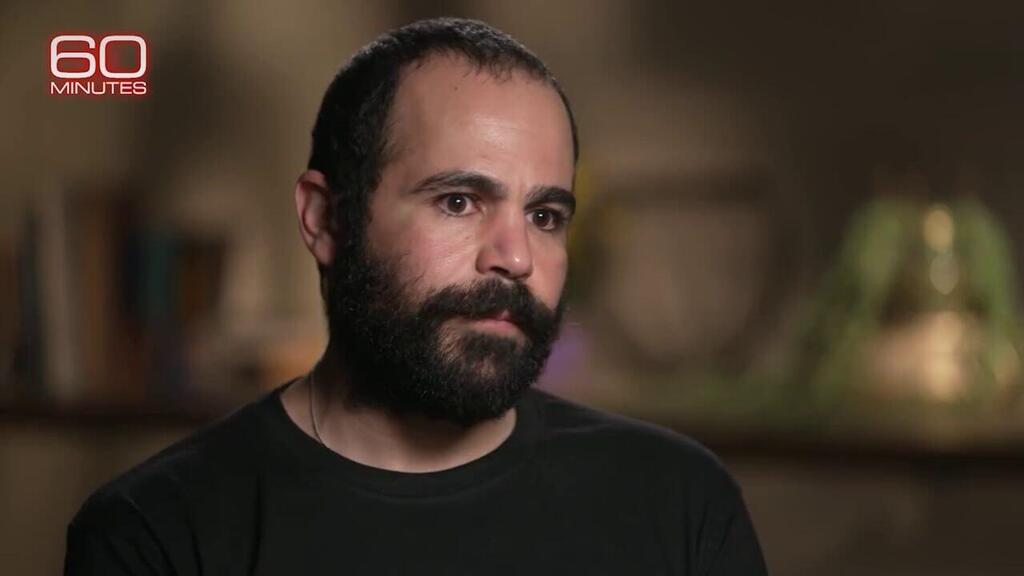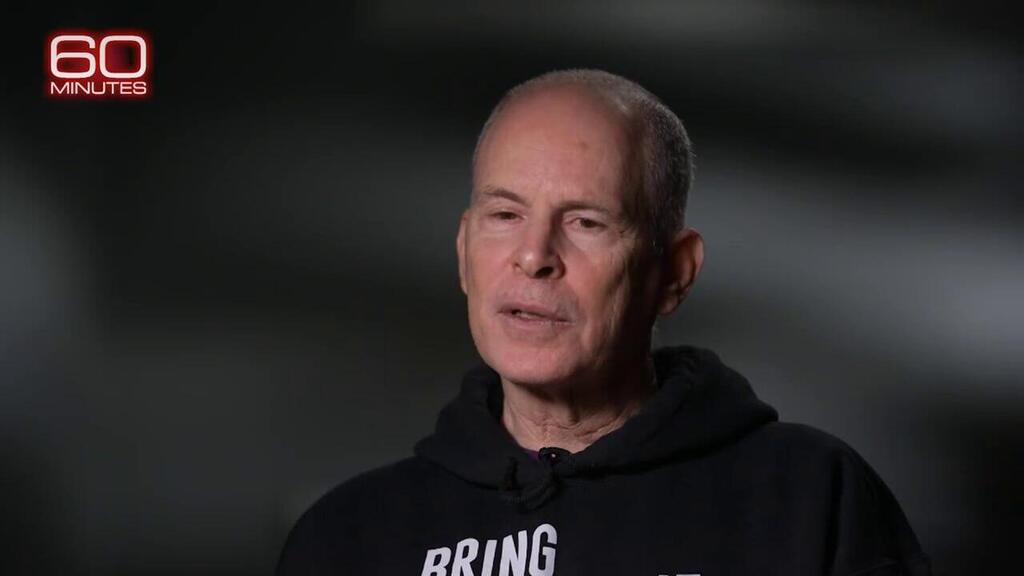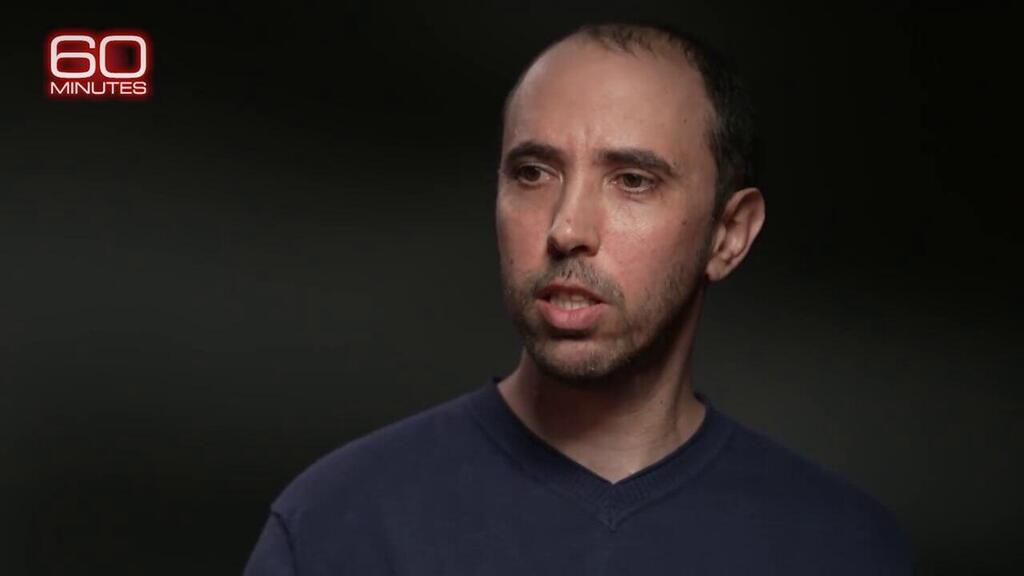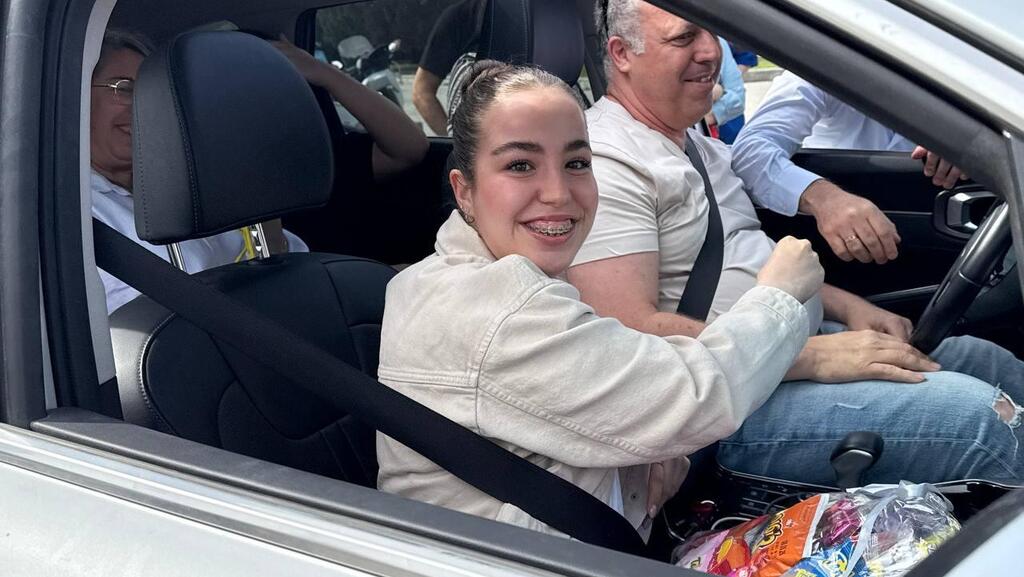Getting your Trinity Audio player ready...
In an interview aired Monday overnight on CBS's "60 Minutes," former hostage Yarden Bibas spoke for the first time about the horrors he endured since October 7 and the loss of his wife, Shiri and their children, Ariel and Kfir.
Alongside Tal Shoham and Keith and Aviva Siegel, he called for the release of the 59 remaining hostages, including his close friends, David and Ariel Cunio. Bibas described IDF airstrikes, the brutality of his captors and made a direct appeal to U.S. President Donald Trump to end the war.
Former hostages' interview in '60 Minutes'
(Video: 60 Minutes)
Bibas recounted how Hamas terrorists forced him to sit in front of a camera after informing him that his wife and sons had been killed in an Israeli airstrike — though he now knows they were murdered by their captors.
" They were all murdered in cold blood, bare hands," he said. " They [Hamas] used to tell me 'Oh, doesn't matter. You'll get a new wife. Get new kids. Better wife. Better kids.'"
When asked if he believed resuming military operations in Gaza would push Hamas to release the hostages, Bibas responded, "No." He thanked Trump, saying, "I know he can help. I'm here because of Trump. I'm here only because of him. I think he's the only one who can stop this war again."
When interviewer Lesley Stahl asked Bibas what he would say to President Donald Trump if he could speak to him, he responded, "Please stop, stop this war and help bring all the hostages back."
Describing his time in the tunnels, Bibas said, "It's scary. You don't know when it's going to happen. And when it happens, you're afraid for your life. The whole earth would move like an earthquake, but underground. So everything could collapse any moment."
Bibas also spoke about his captive friend David Cunio. " This is David. I know him from first grade. And this is his younger brother, Ariel. They're both still in captivity. And I don't know if they gave enough food, enough water. Especially now, when the war is back on. We did everything together. He was with me in every big thing in my life. He was in my wedding. And now I'm having probably the hardest thing I have to move with my life, and David is not with me. I lost my wife and kids. Sharon must not lose her husband."
Keith Siegel: 'I saw sexual assault with female hostages'
Former hostage Keith Siegel also spoke to "60 Minutes," alongside his wife, Aviva, who was abducted on October 7 as well. "We were driven into Gaza and then taken into a tunnel -- feeling in danger, feeling life threatened, terrorists around us with weapons. We were gasping for our breath."
Siegel described seeing a young woman being tortured by the terrorists. " I witnessed a young woman who was being tortured by the terrorists. I mean literal, you know, torture, not just in the figurative sense," he said. "They made me watch. I saw sexual assault with female hostages."
He recounted the conditions of captivity: "The terrorists became very mean and very cruel, and violent. They were beating me and starving me. I think they starved me and they would often eat in front of me and not offer me food. They let me take a shower once a month. It was like a half a bucket of water with a cup to like pour over our body, cold water. "
Get the Ynetnews app on your smartphone: Google Play: https://bit.ly/4eJ37pE | Apple App Store: https://bit.ly/3ZL7iNv
"I felt that I was completely dependent on the terrorists, that my life relied on them, whether they were going to give me food--bring me water protect me from the mobs that would lynch me. I was left alone several times and I was very, very scared that maybe they won't come back and I'll be left there. And what do I do then?"
Siegel described Aviva's release in the first hostage deal in November 2023. "We had to say goodbye. I was relieved and hopeful that she was really going home. But when I saw her release on TV, the crowd there was yelling and screaming in a very hostile way. I wasn't sure Aviva had made it home alive. It was very stressful."
Aviva called for a deal to bring back the remaining hostages: " There needs to be a deal that will bring them back, and finish with this whole thing."
Siegel also described the "release ceremony" Hamas staged for him, Bibas, and fellow hostage Ofer Calderon. "They told me beforehand to go on stage, wave to the crowd and say 'thank you.' Thank you to Hamas. I waved. I waved to the crowd. I didn’t say thank you. I felt anxious that something might go wrong and that I wouldn’t actually be freed."
Tal Shoham: 'One of the guards liked back rubs — we made an exchange'
Former hostage Tal Shoham, who was held with hostages Guy Gilboa-Dalal and Evyatar David, spoke with their families about captivity. Describing Gilboa-Dalal, he said, "One moment he's, like, partying in the Nova, the second moment he's in the worst place in the world. And it's took him, I think, five or six days just to-- stop crying, to start to realize that this is the reality now."
Shoham said they were held in a narrow tunnel, beaten daily and given only small portions of pita bread, rice and water. "Sometimes the water tastes like blood, sometimes like iron. Sometimes it was so salty that you could not drink it, but you don't have anything else. You don't need too much to stay alive. You can eat only one bread every day, and if-- have-- like, 200 mL of water every day and you will stay alive."
Shoham recalled that their main guard told them, "I can bring you this kind of amount of food and you will survive, and you will keep like that for five years. And you won't die but you will have, like, the worst time."
They also discovered one of the guards enjoyed back massages. "We made a trade—he’d get a massage from us every day, and in return, he’d bring us extra food. Different food: a can of meat, a tin of tuna or sardines."
He described the despair among the hostages. "One of the toughest things that I heard from them, they told me more than once that why to stay alive now? I mean, why just to not take their own life with their own hand and to finish it, I mean to get released from this.
"They are not children, but from time to time I felt like a father. I really, really fear that they are now alone. And then they moved them back to the tunnels. So this can be devastating to them."
The Siegels meet Agam Berger
In a separate segment, Keith and Aviva Siegel met former hostage Agam Berger, who was kidnapped from the Nahal Oz military base, where she served as a lookout. "This beautiful, amazing girl arrived in the tunnel with us, and she never stopped smiling—even though they were so cruel to us all the time," Aviva said.
Addressing Berger, who looked embarrassed, she continued, "Even then, you smiled. She just has this smile and it helped so much."
At one point, they connected by phone with another former hostage, Liri Albag, who had also been held in the tunnels after being kidnapped from Nahal Oz. Aviva said that after her release, Keith "fell into depression," and that Berger and Elbag helped pull him out of it.
"For three days, he just lay there, not even wanting to sit up and talk. They said they were worried about him, that he had to snap out of it because he used to make them laugh."
Keith recalled a particularly intense bombing. "Agam was especially scared. I asked if it was okay to hold her hand. She held mine and I held hers. She helped me and I helped her."
Calling for renewed negotiations, Keith urged, "President Trump, the U.S. government, the Israeli government, the mediators — everyone needs to come together, return to the negotiating table and bring the hostages home. Every passing day brings more suffering, more chances of death and psychological destruction."










